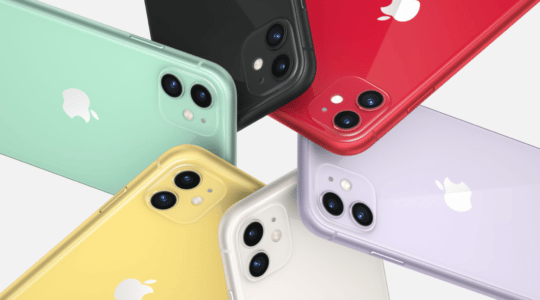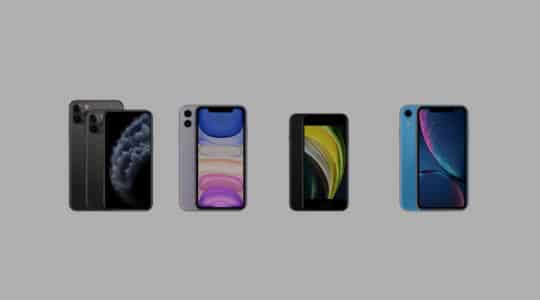Welcome to the newest installment of App Marketing Conversations. In this episode our CEO, Ian Sefferman (@iseff), discusses the differences between Google Play and iOS. He is joined by Ryan Morel (@ryanmorel) of Gamehouse (@ghpartners) and Robi Ganguly (@rganguly) of Apptentive (@apptentive).
Transcription
Ian Sefferman: Hi everybody, welcome to another installment of, App Marketing Conversations. As always I am here with Ryan Morel of Game House and Robi Ganguly of Apptentive and I am Ian Sefferman of MobilDevHQ. For probably the last four years I think there has been a common question that has been asked and talked about and discussed over and over again. That is Google Play vs. I.O.S.. Apps.
Ryan Morel: That horse is dead.
Ian Sefferman: Yes.
Ryan Morel: Been beaten to-
Ian Sefferman: Yes. Absolutely so we are a going to do it one more time. In particular, I wanted actually to think about how does google play in I.O.S. differ from innovation today. Who is really innovating, who is not necessarily market share, not what platform you should develop for first but like who is doing really interesting things. Which one of those guys- and obviously mobile HQ has a bent toward search and discovery and things like that but that is not just in general. Give me your highest level who do you think is more innovative today I.O.S. or Google Play?
Ryan Morel: That is a hard question for me to answer because I am clearly more of an Apple fan boy than a Goggle fan boy. I think Goggle is moving faster to drive their ecosystem than Apple is. I am not sure that Apple needs to.
Ian Sefferman: Interesting. What about you?
Robi Ganguly: I think that the innovation is definitely happening at Google. But there is experimenting with taking more of the data and applying it. It just seems that their infrastructure allows them to do that faster then whatever is happening behind the scenes at Apple. I think the chump is still not one hundred percent integrated. It just seems like Google is able to execute faster on newer things.
Ian Sefferman: Yep, actually I do not know if you saw the Co-Founder of Chump is leaving.
Robi Ganguly: Yea I did see that.
Ian Sefferman: She wasn’t even working in search at all. I mean more than all she was in Apple maps which is. Really does anyone use Apple Maps for anything?
Robi Ganguly: I do actually.
Ian Sefferman: Do you really?
Robi Ganguly: Yes they have got a lot better.
Ian Sefferman: Wow.
Robi Ganguly: If you look at the usage curves like Google Maps when looking at these other maps just by default.
Ian Sefferman: I am a staunch believer that Google play has done far more and Android has done far more in incremental innovation. Apple in my opinion is the best company in the world at doing sort of hundred’s apps and leaps. They will go from the flip phones to the IPhone and that is freaking amazing. Then Google is actually pretty good at being like, okay well we have an Android device, now we are going to have an App store, now we are a going to have this, we are going to have this. Now we are a going to have Google Now we are a going to have all these things and they incrementally innovate. My guess is that something interesting is going on under the covers at Apple right now that we do not know about but to all marketers, publishers, and consumers Google Play seems like they are really innovating faster to me.
Ryan Morel: That is their DNA right? Because they are a services company. If you looked at the two eco systems separately saying Apple is a false eco system and Google is sort of but not really. For the most part they do not own hardware manufacturing and do not own distribution and they do not own all of that stuff. That is one set of things. Google is good at services, Apple is good at creating hardware distributing it and the software eco system around it. Ultimately I had this conversation at GDC last week like, and it has been talked about before a lot of the big name bloggers have. Despite the fact that Android has substantially more users and it grows faster, Apple is still making five times the money on content vs. Google Play. The logic of marketure that’s of more. At some point Google has to be doing this stuff they have to add incremental value to developers and consumers. No offense to Robi, but Android consumers are not as valuable.
Robi Ganguly: Thanks buddy. I feel validated over here.
Ryan Morel: You know what I mean.
Ian Sefferman: Let us talk about from the developers’ side. Let us just get some concrete examples of things that Google play hasn’t omitted on and things that Apple has omitted on and potentially where both of them can go from there.
Robi Ganguly: I think from the developers side, the stuff that Google has continued to do around personalization is hard to see explicitly but implicitly it’s interesting. Assuming the few numbers we’ve seen around it in terms of increases of installs are correct and then what you see in terms of organic is correct, that means that Google is fundamentally driving developers more long time users. So, I think that’s really fascinating and the more they can do that, the more the modernization question becomes perhaps more of a debate because it’s not just about credit cards on file, then you’re just talking about getting better installs and that changes the equation pretty dramatically. So, If I were them I would continue to push on that access.
Ian Sefferman: You were talking about this before we started filming. Take that and combine it with the fact that they’ve built better developer tools than apple does, and you have some pretty rich insights for a marketer to lean off of right?
Ryan Morel: Yeah. I still don’t know that it matters. I don’t mean to poke the bear across the lake here but Microsoft has always built great developer tools. Great developer tools can’t save you. I mean, they help and they can give you a leg up when you have competitive ecosystems that are—what’s going on? Like this—but ultimately Robi’s point is that Android has enough users to be relevant regardless of the fact that they don’t monetize well. If they start to monetize well, that’s an entirely different ball game.
Ian Sefferman: So, what can—You had some thoughts before on what Apple can do, or what Apple might be doing to get better.
Ryan Morel: Yeah. So, I think my biggest hope for apple, at least as it pertains to I.O.S. 8, is doing a better job at cross app and web tab linking to unify the experience a little bit more. So, if we back up a little bit, you’ve seen the ipad and the iphone move away from kind of just this single app of going to each one to the I.O.S. search for something and it pops up. It’s very much like a web experience. Right? And itunes is starting to look more and more like the web. I think they need to continue to combine those and making it really easy for someone to know: hey, this person came from this website to this app, then they went to this other app, and you can track them all the way through. That sort of cross app and web to app linking would be super valuable to marketers. As we all know the mobile web is growing really fast, not as fast as apps are growing, but still growing really fast. If Apple believes, and I think they do, that the majority of search and content conception on the web is going to be mobile in say the next ten years, then they need to make dramatic strides in being able to connect that internet experience to their ecosystem because right now it’s not.
Ian Sefferman: Yeah, totally. I think there are a lot of people working on deep linking and fundamentally some form of deep linking has to happen. Right?
Ryan Morel: Yeah.
Ian Sefferman: At a large scale and it probably has to come from an Apple product.
Ryan Morel: Yeah, yeah, it has to. That’s the only way to make it work. That’s what Google does right? So you can pass in right now into URLs into any add created Google—I don’t know. Well, you know better. At the back end it says, “Oh, this website drove me in this traffic.” That’s what Google is good at.
Ian Sefferman: Ok, cool. Well, be sure to watch the other installments and like this video and subscribe to our channel. Thanks.
Author
Becky is the Senior Content Marketing Manager at TUNE. Before TUNE, she handled content strategy and marketing communications at several tech startups in the Bay Area. Becky received her bachelor's degree in English from Wake Forest University. After a decade in San Francisco and Seattle, she has returned home to Charleston, SC, where you can find her strolling through Hampton Park with her pup and enjoying the simple things in life.




Leave a Reply
You must be logged in to post a comment.